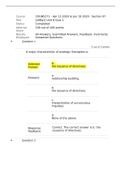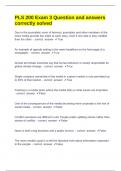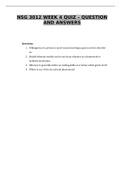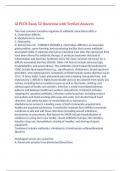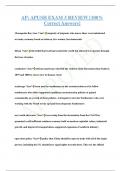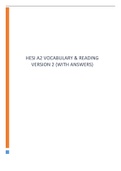Compare these two translations with Wilson's
George Chapman’s opening lines [1616]
The man, O Muse, inform, that many a way [1]
Wound with his wisdom to his wished stay;
That wander’d wondrous far, when he the town
Of sacred Troy had sack’d and shiver’d down;
The cities of a world of nations,
With all their manners, minds, and fashions,
He saw and knew; at sea felt many woes,
Much care sustain’d, to save from overthrows
Himself and friends in their retreat for home;
But so their fates he could not overcome,
Though much he thirsted it. O men unwise,
They perish’d by their own impieties!
That in their hunger’s rapine would not shun
The oxen of the lofty-going Sun,
Who therefore from their eyes the day bereft
Of safe return. These acts, in some part left,
Tell us, as others, deified Seed of Jove.
- Translated by George Chapman, The Whole Works of Homer, 1616.
[1] The information or fashion of an absolute man; and necessary (or fatal) passage through
many afflictions (according with the most Sacred Letter) to his natural haven and country, is
the whole argument and scope of this inimitable and miraculous poem. And therefore is the
epithet πολὐτροπον given him in the first verse: πολὐτροπος signifying, Homo cujus ingenium
velut per multas et varias vias vertitur in verum.
Rodney Merrill’s opening lines
Tell me, Muse, of the man versatile and resourceful, who wandered
many a sea-mile after he ransacked Troy’s holy city.
Many the men whose towns he observed, whose minds he discovered,
many the pains in his heart he suffered, traversing the seaway,
fighting for his own life and a way back home for his comrades.
Not even so did he save his companions, as much as he wished to,
, for by their own mad recklessness they were brought to destruction,
childish fools—they decided to eat up the cows of the High Lord,
Helios: he then took from the men their day of returning.
Even for us, holy daughter of Zeus, start there to recount this.
Translated by Rodney Merrill, The Odyssey of Homer, Ann Arbor: University of
Michegan Press, 2007.
Sebald Lecture 2019: Emily Wilson Lecture:
All in regular iambic pentameter with frequent alliteration, the translation
focuses on the sounds of words
Attempts to honour the simple syntax and clarity of Homer, as it is a poem
designed to be comprehensible by illiterate audiences through oral tradition
Quick narrative pace and precise vivid details in describing the narrative
world.
Passage in book 13 demonstrates challenges as a translator trying to retell
unfathomable distances between space and time.
Tried her best to provide immersive experience, e.g. in b13 when Odysseus
sleeps tries to make the language effortless to that the experience is mirrored
through the reader, however sometimes tries make reader aware of the pace of
the words and their flow. Tries to sync the readers experience with Odysseus's
experiences > when he's confused, the reader should be confused etc...
Views the poem as an exploration of personal question and identity
development, is it possible after a substantial period of time for a person to
return to who they were so long ago? How to deal with those who aren't like
us? How to deal with unfinished and disturbed relationships? Are communities
formed by keeping people in or out? Grief, rage, recognition, the various
definitions of home and is a poem that turns the simple details of everyday life
into resonant symbols that define both divine and human relationships.
Wilson enjoys translation because it requires the closest possible form of close
reading, requires you to engage with every single element of the original text.
Are there things missing from the already existing translations of the text?
First concern was form: how does one replicate the meter and rhythm of
Homer? The Original is all the way through in dactylic hexameter. Dactylic =
long, short, short. Hexameter = six of those all the way through.
Avoided any already existing translations of the text to avoid being influenced
by them.
Chose to use iambic pentameter because thought it was the closest regular
rhythm that's equivalent to what dactylic hexameter means in the context of
archaic Greece - it means normal rhythm for narrative verse.
Tried to avoid being too wordy or add to the original, forced herself not to do
that by making sure that her translation was the same number of lines as the
original.
George Chapman’s opening lines [1616]
The man, O Muse, inform, that many a way [1]
Wound with his wisdom to his wished stay;
That wander’d wondrous far, when he the town
Of sacred Troy had sack’d and shiver’d down;
The cities of a world of nations,
With all their manners, minds, and fashions,
He saw and knew; at sea felt many woes,
Much care sustain’d, to save from overthrows
Himself and friends in their retreat for home;
But so their fates he could not overcome,
Though much he thirsted it. O men unwise,
They perish’d by their own impieties!
That in their hunger’s rapine would not shun
The oxen of the lofty-going Sun,
Who therefore from their eyes the day bereft
Of safe return. These acts, in some part left,
Tell us, as others, deified Seed of Jove.
- Translated by George Chapman, The Whole Works of Homer, 1616.
[1] The information or fashion of an absolute man; and necessary (or fatal) passage through
many afflictions (according with the most Sacred Letter) to his natural haven and country, is
the whole argument and scope of this inimitable and miraculous poem. And therefore is the
epithet πολὐτροπον given him in the first verse: πολὐτροπος signifying, Homo cujus ingenium
velut per multas et varias vias vertitur in verum.
Rodney Merrill’s opening lines
Tell me, Muse, of the man versatile and resourceful, who wandered
many a sea-mile after he ransacked Troy’s holy city.
Many the men whose towns he observed, whose minds he discovered,
many the pains in his heart he suffered, traversing the seaway,
fighting for his own life and a way back home for his comrades.
Not even so did he save his companions, as much as he wished to,
, for by their own mad recklessness they were brought to destruction,
childish fools—they decided to eat up the cows of the High Lord,
Helios: he then took from the men their day of returning.
Even for us, holy daughter of Zeus, start there to recount this.
Translated by Rodney Merrill, The Odyssey of Homer, Ann Arbor: University of
Michegan Press, 2007.
Sebald Lecture 2019: Emily Wilson Lecture:
All in regular iambic pentameter with frequent alliteration, the translation
focuses on the sounds of words
Attempts to honour the simple syntax and clarity of Homer, as it is a poem
designed to be comprehensible by illiterate audiences through oral tradition
Quick narrative pace and precise vivid details in describing the narrative
world.
Passage in book 13 demonstrates challenges as a translator trying to retell
unfathomable distances between space and time.
Tried her best to provide immersive experience, e.g. in b13 when Odysseus
sleeps tries to make the language effortless to that the experience is mirrored
through the reader, however sometimes tries make reader aware of the pace of
the words and their flow. Tries to sync the readers experience with Odysseus's
experiences > when he's confused, the reader should be confused etc...
Views the poem as an exploration of personal question and identity
development, is it possible after a substantial period of time for a person to
return to who they were so long ago? How to deal with those who aren't like
us? How to deal with unfinished and disturbed relationships? Are communities
formed by keeping people in or out? Grief, rage, recognition, the various
definitions of home and is a poem that turns the simple details of everyday life
into resonant symbols that define both divine and human relationships.
Wilson enjoys translation because it requires the closest possible form of close
reading, requires you to engage with every single element of the original text.
Are there things missing from the already existing translations of the text?
First concern was form: how does one replicate the meter and rhythm of
Homer? The Original is all the way through in dactylic hexameter. Dactylic =
long, short, short. Hexameter = six of those all the way through.
Avoided any already existing translations of the text to avoid being influenced
by them.
Chose to use iambic pentameter because thought it was the closest regular
rhythm that's equivalent to what dactylic hexameter means in the context of
archaic Greece - it means normal rhythm for narrative verse.
Tried to avoid being too wordy or add to the original, forced herself not to do
that by making sure that her translation was the same number of lines as the
original.

